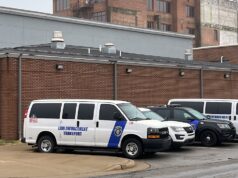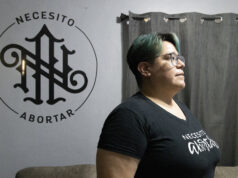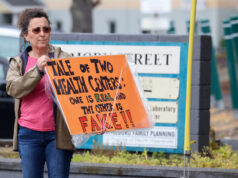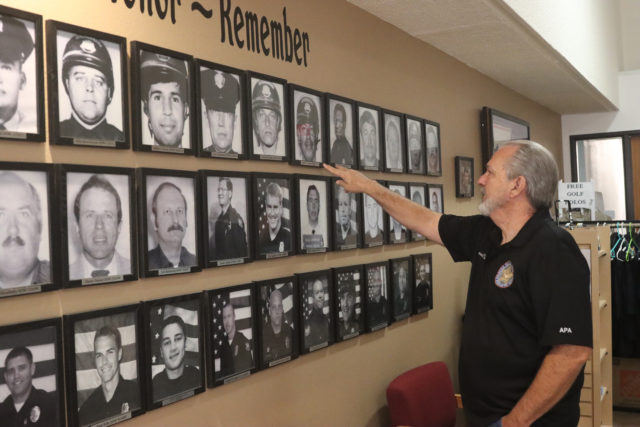

(Editor’s note: This article is part of “In Pursuit,” an investigation into police reform and accountability in America, produced by the Carnegie-Knight News21 program. For more stories, visit inpursuit.news21.com. News21 reporters Nathan Collins, Tirzah Christopher and Henry Bredemeier contributed to this article.)
By Damali Ramirez, Taylor Bayly and Kierstin Foote | News21
MADISON, Wisc. — Common demands for police reform entail chipping away at long-established police protections. For instance, many reformers want to make complaints against officers open to the public, tighten and enforce use-of-force rules, and reform the disciplinary process.
In cities and towns across the country, those demands have met fierce resistance from police unions, which sometimes use their power and political influence to thwart efforts their members oppose.
“Many police unions put themselves forward as kind of like the base of opposition for a lot of police reform efforts,” said Jorge X. Camacho, the policy director of the Justice Collaboratory, a research center at Yale Law School. “Not all the time, not always, not for every effort, but much of the time.”
University of Colorado law professor Benjamin Levin put it more bluntly in an essay for the Columbia Law Review: “Police unions have become public enemy number one for commentators concerned about race and police violence.”
Joe Clure, the executive director of the Arizona Police Association, who has worked with unions throughout Arizona, said police unions and most officers don’t have a problem being held accountable. But unions must strike a balance in their efforts to protect officers.
“You look around across the country, politicians, particularly on the left, have villainized police officers,” said Clure, whose association represents more than 50 law enforcement agencies in the state. “They demonized police officers.”
Like other public-sector unions, police unions exist to protect and advocate for their members. What differentiates police unions is the degree of influence they have cultivated.
Law enforcement has a unionization rate of more than 60 percent — second only to firefighters, according to an article from the Cicero Institute, a Texas think tank. In comparison, the union membership rate for public-sector workers nationally is about 34 percent, according to 2021 data from the Bureau of Labor Statistics.
With such high membership rates, many police unions have built strong positions in their communities: They can negotiate protections into their contracts. They can use their money and influence to lobby legislators and support political candidates. And they can hire attorneys to fight policies — and people — they don’t like.
However, police unions do not have “real power,” Camacho said. They can’t strike or prevent a police department from doing what it wants.
Public perceptions of police unions differ. Gallup has asked U.S. residents about a variety of police reform efforts for several years. In May, the public opinion survey showed 44 percent of the 12,000 U.S. adult respondents thought police unions should be eliminated. However, that’s a decrease from the two previous surveys.
As the public pressure has mounted to reform policing in America, indications have cropped up across the country that the power dynamic with some police unions has shifted — whether by choice or force. Some union leaders have tried to lead change, and others have made concessions after facing public backlash. And some unions are fighting to maintain their power as outside groups try to strip them of their control.
Kevin Robinson, a former assistant chief with the Phoenix Police Department, said unions can have a tremendous impact on reform efforts.
“How they do that is by telegraphing to their membership that misbehavior of any sort — any kind of nonprofessional behavior — will not be tolerated,” said Robinson, who teaches criminology at Arizona State University and is seeking a seat on the Phoenix City Council, “not by the citizens of the community they represent, not by the police department and certainly not by the police union.”
Union influence grows over decades
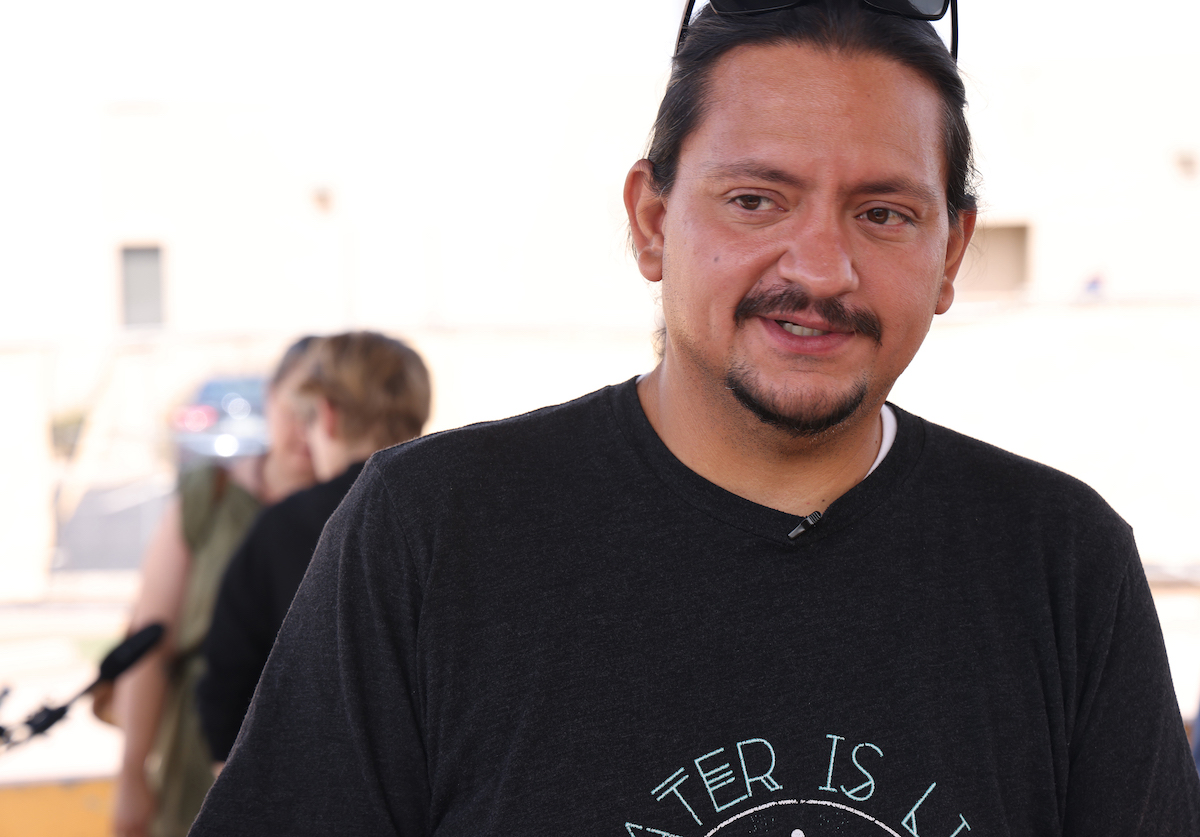
With its 24,000 sworn members, the Police Benevolent Association of the City of New York boasts that it is the largest municipal police union in the world. In 2020, it brought in nearly $30 million in revenue, according to Guidestar, which tracks nonprofit organizations.
The New York police union flexes its power in numerous ways, but it didn’t always have that kind of strength.
The association began as the Patrolmen’s Benevolent Association in 1894 to provide benefits for widows of officers killed in the line of duty. At that time, many police unions and associations started as a way to protect and represent officers’ interests publicly while also working with elected officials on officer contracts.
Those early unions did not have the right to collectively bargain for wages. And after a violent police strike in Boston in 1919 that caught the ire of President Woodrow Wilson, police unions lost the right to strike.
Samuel Walker, emeritus professor of criminal justice at the University of Nebraska-Omaha, has been researching and writing on police unionization for nearly five decades. He said unions started gaining power in the 1960s as police faced turmoil in their communities.
“Because of the urban riots and everything, rank-and-file officers got mad,” Walker said. “They also got mad at their chiefs about how they were being treated. There are really pretty hair-raising stories about that.”
Unions and associations began gaining the right to collectively bargain in the 1960s and 1970s, giving them more leverage.
Seth Stoughton, a law professor from the University of South Carolina and a former police officer, said unions have the right to collectively bargain over anything they believe materially affects the workplace — from office desks to body cameras worn in the field.
Stoughton said union influence has grown so much that it doesn’t just affect decisions during contract negotiations. Unions can lean on members to get behind certain issues or candidates or stall any actions they don’t support.
Police unions and associations have spent more than $48 million to lobby at the state level and have given nearly $71 million to state-level candidates and committees in the past decade, according to OpenSecrets. Democrats and Republicans alike have received generous political donations.
Unions also can try to influence elections.
In Arizona, the Phoenix Law Enforcement Association commissioned a public opinion survey earlier this summer that focused on just one of the Phoenix City Council’s districts — District 8, represented by Carlos Garcia, an outspoken supporter of police reforms.
A news release highlighting the survey results included a statement from the union’s president saying Garcia is “clearly out of step with the priorities of his district.”
Garcia, a longtime community activist, finished first in the November election but only received 39.5 percent of the vote, meaning he will face Kesha Hodge Washington in a March runoff. Representatives for the union didn’t respond to a request for comment. A poll of this size can cost $5,000 to $25,000, according to the polling company.
Union leaders who focus on reform
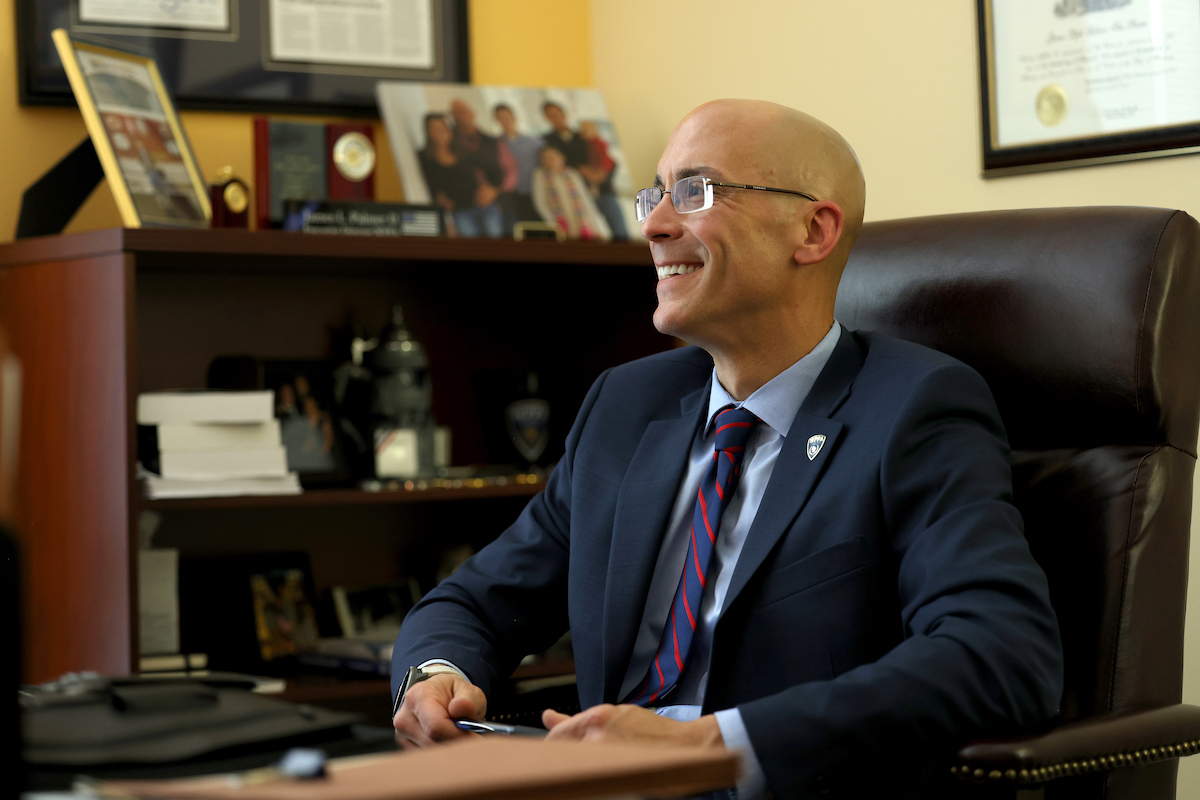
In late June, a large white board in Jim Palmer’s Madison office listed the police shootings in Wisconsin and ongoing public safety cases in court. Also on the board: a short list of groups that disaffiliated from the Wisconsin Professional Police Association, which Palmer leads.
The 90-year-old union, which represents more than 11,000 members, has sought out public opinion and advocated for policies that improve policing standards. A decade ago, Palmer launched an annual community survey to gauge which policing policies the public supports and persuade officers to get on board with them.
Palmer, an outspoken supporter of police reforms, also has lobbied for legislation and proposed a “blueprint for change,” which called for such things as funding for crisis intervention programs and largely banning chokeholds. In a 2020 editorial, he implored police to act.
“If we fail to seize the opportunity to improve the world around us, we should not be surprised when the public reaction to the next controversial police incident is louder and more severe, and when the calls for reform become more radical,” he wrote.
Palmer doesn’t fit the mold of a typical union leader. But there are examples of other unions taking the lead in police reform.
For example, the AFL-CIO, which has 13 law enforcement affiliates, released a blueprint for public safety reform in 2021. The initiative, which one supporter called a “huge step,” asks members of non-police unions to hold police members accountable if they violate their professional oath or abuse their power, and ultimately to help local unions remove wrongdoers from their membership.
Palmer said he hopes his approach will motivate other unions to follow in his group’s footsteps to benefit communities.
In 2021, the Wisconsin Professional Police Association’s survey asked roughly 1,000 residents about the use of body cameras. The poll showed 85 percent of the respondents thought requiring law enforcement officers to wear body cameras was an “immediate or somewhat of a priority.”
Palmer has advocated for body cameras for police by proposing grant funding for the cameras, using the survey results to bolster his stance. Yet even with public support, some proposals face pushback. In Madison, Wisconsin’s capital, city officials opposed body-worn cameras for years until approving a pilot program in April.
In another example, a previous survey asked community members about their views on independent outside investigations of officer-involved deaths.
In 2013, Palmer worked alongside activist Michael Bell to introduce Wisconsin Assembly Bill 409, which requires at least two outside investigators to look at officer-involved deaths. The state was the first to impose such a requirement, according to USA Today.
Palmer said he used the widespread public support from the survey to help get the bill passed.
Palmer credits his approach to his background. He has not personally worked in law enforcement, but he comes from a law enforcement family. And through his experience as a lobbyist and attorney, he also understands how to effectively advocate for policies.
“Our job is to protect officers, and sometimes you protect officers by protecting the profession,” Palmer said.
Camacho said it’s unlikely many police unions will follow in the footsteps of the Wisconsin Professional Police Association because conducting a poll costs thousands of dollars, and most unions prioritize representing the views of their membership.
“Unions don’t typically care about outside opinion. That’s not their role,” Camacho said. “It’s not their purpose as an organization.”
And some Wisconsin residents don’t think the union efforts are going far enough.
Angela Lang, the executive director of Black Leaders Organizing for Communities in the state, said she understands police unions necessarily play a role in reform because they establish the culture and policy for rank-and-file officers. Lang lives in Milwaukee, which has a separate police union. She doesn’t differentiate between that and Palmer’s association.
She said members of the public aren’t fully included in police reform conversations because “the powers at the table want to preserve the way things have always been done.”
Power dynamics shift
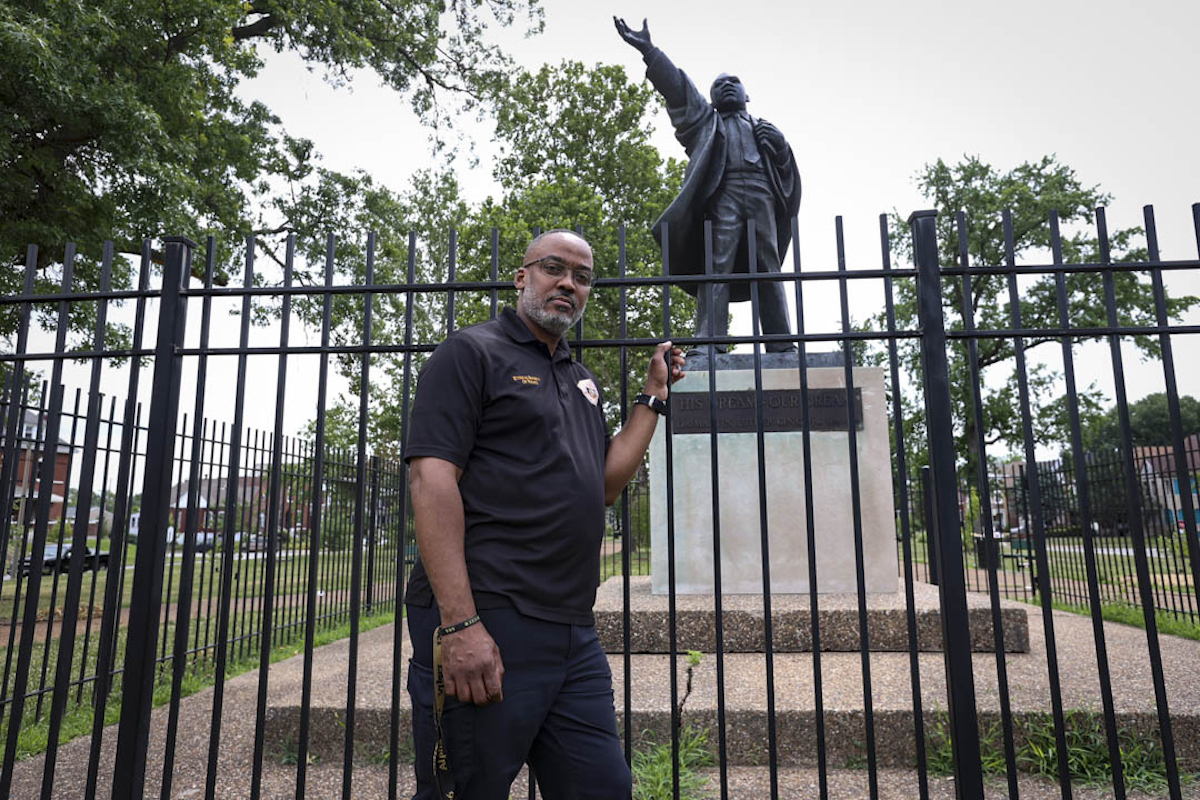
It’s not unusual for police officers who belong to minority groups to form their own police associations. The Guardians Association in New York, the Black Shield Police Association in Ohio, the Massachusetts Association of Minority Law Enforcement Officers Inc., the New Haven Guardians and others have formed to better represent issues that concern officers of color, female officers and LGBTQ officers.
In St. Louis, the Ethical Society of Police, a predominately Black and brown police association, has pushed for accountability for officer misconduct and has brought attention to the culture of police unions that don’t support reforms.
Police officers can be members of both collective bargaining unions and affinity groups. However, St. Louis Metropolitan Police Sgt. Donnell Walters and St. Louis County Lt. Ray Rice opted out of their membership with the St. Louis Police Officers Association, the collective bargaining union, saying they disagree with the culture and policies the union supports.
Rice, who has filed a discrimination complaint against the department, said the predominately white, male union doesn’t always address “things that are impactful to us.”
“Not because it’s intentional, but oftentimes the indifference of it feels the same,” said Rice, who is Black and serves as the recording secretary for the Ethical Society of Police in St. Louis.
Nationwide, white officers have predominantly made up union leadership and law enforcement, according to a 2020 analysis by The Marshall Project. Of the 15 largest U.S. police departments with a majority of officers of color, only three had union presidents of color.
The Ethical Society of Police represents 372 officers in St. Louis City, St. Louis County and the Ferguson Police Department. Most of its efforts for reform focus on community outreach and improving diversity in law enforcement departments.
In 2015, the association worked with St. Louis to create a free pre-academy recruitment program to assist with training and hiring more diverse police officer candidates after the St. Louis Police Officers Association failed to address their concerns about diversity, Rice said.
The city’s diversity assessment found “white residents are more than twice as likely as Black residents to be represented in the police department.” The latest census data shows about 45 percent of St. Louis’ residents identify as Black or African American.
Historically, the Ethical Society of Police has generally supported legislation that promotes transparency and protects officers from retaliation for unveiling discriminatory or corrupt practices.
Walters, the society’s president, said the group’s leaders have publicly disagreed with the bargaining union stonewalling reform and backing police officers accused of misconduct. However, he described the relationship with the St. Louis Police Officers Association as a “working relationship.”
In fact, there are times when both unions align. For example, the three largest unions in St. Louis joined forces earlier this year to file a lawsuit against the city to oppose a civilian oversight bill, according to media reports.
Although Walters’ association has gained prominence, it does not yield the same power as the St. Louis Police Officers Association, (which one St. Louis media outlet called the “white police officers’ union”) when it comes to the right to collective bargaining.
The Rev. Darryl Gray, a civil rights activist and community leader who supports the Ethical Society of Police, said the association shows there can be a positive relationship between police and the community.
He said they also hold the St. Louis Police Officers Association to task.
“They say, ’Wait a minute, we’re police officers, too,’” Gray said. “‘We know what you can and cannot do as officers. And we’re going to hold you to doing what is right.’”
He said if Black police officers’ associations begin springing up across the country, “you’re going to note — the stuff is getting ready to hit the fan. That’s what that would symbolize.”
“That would symbolize the breakup, the division between white community and Black community, because those Black police officers actually represent the feelings of Black folks,” he said. “If Black officers say we’re separating from that institution, that’s symbolic of Black folks separating from society, period. You don’t want to see that.”
The St. Louis Police Officers Association did not respond to numerous phone and text requests for comment.
Unions face public pressure
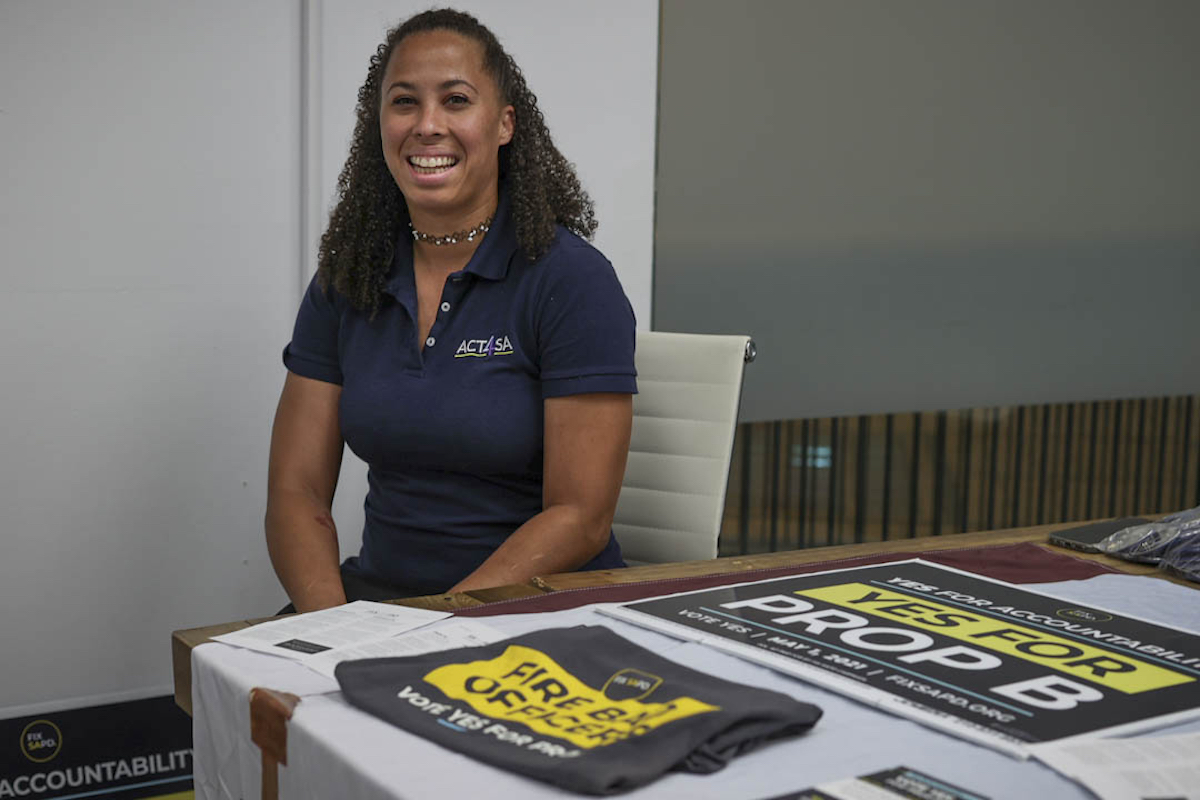
Ananda Tomas sits in an office surrounded by campaign signs and T-shirts that say, “Yes for Prop B” and “Fire bad officers.”
The San Antonio resident played a key role in a 2021 effort to strip the city’s police union of its collective bargaining power. The ballot initiative ultimately failed, although narrowly.
But it still sent a message, said Tomas, deputy director of Fix SAPD, a group focused on police reform.
“It showed that people are ready for a change,” she told a San Antonio media outlet shortly after the election.
Experts say that community pressure ultimately helped incentivize San Antonio police union officials to agree to reforms.
Similar scenarios are happening across the country. Community leaders are leveraging the public’s anger to gain concessions during labor contract renegotiations between police departments and their unions.
When San Antonio’s labor contract with the San Antonio Police Officers’ Association expired in 2021, city officials prioritized reforming two provisions in the new labor contract: disciplinary procedures and arbitration.
Arbitration is the process by which officers fired for misconduct can appeal the decision to a third party in an attempt to be reinstated. Opponents of arbitration argue that it undermines the authority of police chiefs to remove problematic officers. Advocates say that because police chiefs are appointed by public officials, they can be subjected to external political pressure to unfairly fire officers accused of misconduct without due process.
In the backdrop of the pending contract renegotiation, Fix SAPD began collecting signatures to repeal a provision in the city code that grants collective bargaining rights to police officers. Tomas said the system allows the police union to obstruct accountability measures.
The voter referendum, Proposition B, was so contentious that it attracted more votes than San Antonio’s mayoral race. Although Proposition B failed by 2 percent of the vote, the message to police was clear: Don’t risk the whole pie when you can give up a few crumbs.
The new contract made tweaks to both arbitration and the discipline process.
Danny Diaz, president of the San Antonio Police Officers’ Association, said the new contract earned an 86 percent approval rating from rank-and-file police officers.
“We’re not here to protect bad cops,” Diaz said. “At the same time, we are here to make sure there’s a process in place and that the process is followed.”
For Tomas, however, the police contract’s reforms fell short.
“Everything to me was a step in the right direction, but not 100 percent of what we want or what we need,” she said.
María Villagómez, San Antonio’s chief negotiator and deputy city manager, said city officials sought more concessions from the police union, too. But they recognized the city would not likely achieve all of its reform goals immediately.
The idea of giving voters more input might have long-term benefits, one expert said.
New York attorney Frederick Brewington, who specializes in police misconduct and civil rights law, said ballot initiatives and voter referendums allow residents to determine what reforms are best suited for their community. Amending city charters, Brewington added, ensures that reforms are ingrained into law while alterations made through contracts can change with the next round of negotiations.
“Leaving that to the community, leaving that to a referendum seems to have great value,” Brewington said.
Activists across the country are using ballot initiatives to codify police reforms into law. In Portland, Oregon, more than 80 percent of voters approved a 2020 ballot initiative to overhaul its police oversight system.
In San Marcos, 50 miles northeast of San Antonio, leaders of the activist organization Mano Amiga watched what happened in San Antonio. They’re also prepared to fight their city’s latest contract at the polls.
Eric Martinez, the policy director of Mano Amiga, said his group has pushed for changes that would have improved accountability and transparency. He credits the work of activists in Austin and San Antonio for helping propel the efforts of Mano Amiga.
Across the country, other contract negotiations have also included concessions. In Phoenix, officers can no longer purge disciplinary records from their personnel files or use paid vacation hours while on suspension. In Chicago, supervisors can now investigate anonymous complaints.
Challenging change
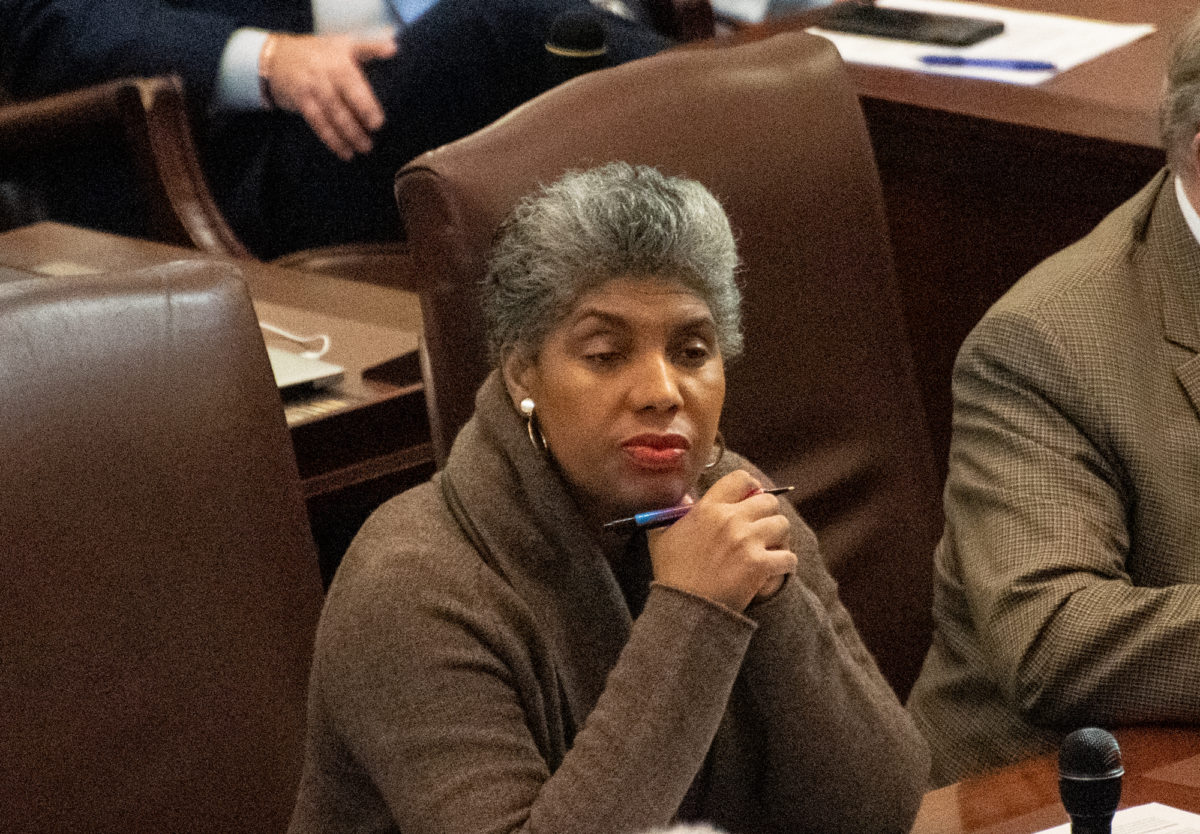
Oklahoma state Rep. Regina Goodwin (D-Tulsa) has sponsored seven police reform bills, including one that would have restricted police unions from negotiating the terms of officer disciplinary procedures.
“I applaud those officers that risk their lives, I applaud officers that do their job the right way,” said Goodwin, who represents Tulsa’s historic Greenwood district. “My criticism of policies, law and bad officers is not that I am anti-police, but I’m certainly pro-people and pro-justice.”
Goodwin is a member of Oklahoma’s Legislative Black Caucus. A century ago, her family survived the Tulsa Race Massacre that destroyed Greenwood, a prosperous neighborhood known as Black Wall Street.
Oklahoma is a state where Black people are more than three times more likely to be killed by police than white people, according to Mapping Police Violence.
But Republicans outnumber Democrats 81 to 20 in Oklahoma’s House of Representatives. Despite bipartisan support among voters for some reforms, such as banning chokeholds and the integration of body cameras, the Legislature typically doesn’t move on police reform bills.
“There are a number of bills that I have authored, and they’re meaningful, and they don’t even get a hearing in committee,” Goodwin said.
It’s a familiar story. Across the country, bills addressing arbitration and collective bargaining often never make it to the governor’s desk. And when something does make it into law, it can get stuck in court.
It’s not unusual for police unions to sue local and state governments to stop laws from taking effect — with mixed success.
In 2020, the Council of the District of Columbia passed a law that, among other reforms, revoked the right of union officials to negotiate disciplinary procedures. The Fraternal Order of Police sued the District, claiming the law violated the equal protection and due process clauses of the Constitution. A federal judge dismissed the case, and a federal appellate court upheld the decision in August.
Patrick Yoes, the national president of the Fraternal Order of Police, called it “terrible news” for officers in the D.C. Metropolitan Police Department and beyond.
“This is going to have a chilling effect, not just in the District, but nationwide,” Yoes said in a statement. “This is only going to add to the ongoing wave of early retirements and individuals leaving the profession because of the way they are being treated.”
Unions’ role in the future
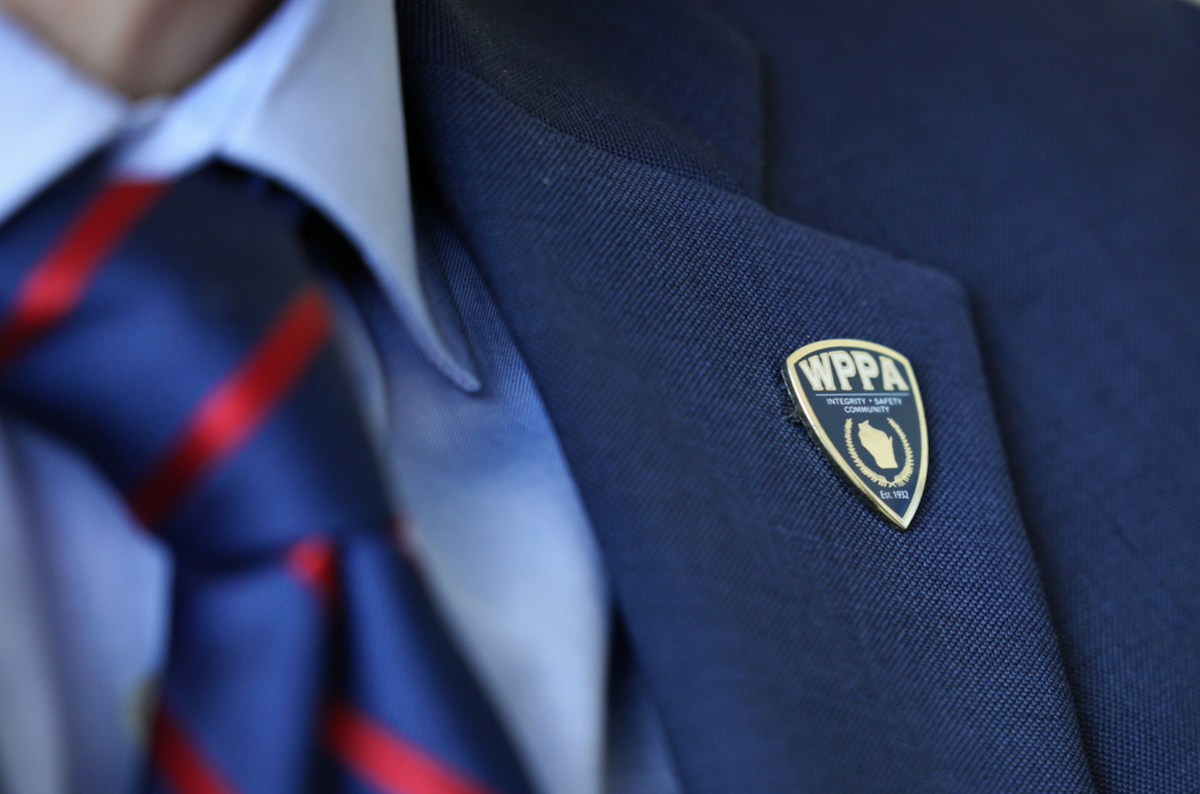
Experts have mixed views about the role unions will play in police reform in the future.
Walker, from the University of Nebraska-Omaha, has a more pessimistic view, noting that unions have fought “tooth and nail” against every good reform proposal since the 1960s.
“I mean, they’ve just dug in,” he said. “And there really isn’t any kind of constructive dialogue between, let’s say, police activists in the community and the police unions. That dialogue doesn’t exist.”
News21 reached out to more than 100 of the largest police unions in the United States to gauge their views on police reform. Only one — the Fraternal Order of Police Fort Pitt Lodge No. 1 in Pittsburgh — responded to the survey.
Robert Swartzwelder, the organization’s president, said officer morale is the lowest he’s seen during his 34 years in law enforcement. Although he thinks community support for his organization as a whole is high, “it’s the rhetoric that diminishes the support for public safety unions.”
The public often misunderstands what unions can and can’t do, he said.
“Police officers do not have the right to strike,” Swartzwelder said. “The tradeoff is collective bargaining as a state statute. If the public does not appreciate or support collective bargaining, then grant police officers the right (to) strike.”
Swartzwelder said his union has supported some Pennsylvania police reforms that involved use of force training and mandatory background checks on all police candidates statewide.
One expert said unions are more likely to make incremental changes.
“If what is imagined or desired in terms of policing reform is something fairly modest or moderate, maybe different types of training, maybe different types of officers deployed in different places, things like that, then I think there’s reason to be optimistic about unions as a tool for reform,” said Levin, of the University of Colorado Boulder.
Palmer, the Wisconsin union leader, said he feels the pressure for the profession to change.
“A good union is not only an advocate for its members, it is an advocate for the profession,” Palmer said. “It also has to be an advocate for the community as well and has to balance those sometimes very difficult plates.”
Still, he said, there’s value in change — regardless of how incremental.
“We can’t let the perfect be the enemy of the good.”
(Correction: This article was updated at 1 p.m. Wednesday, Jan. 4, to correct reference to the Oklahoma Legislative Black Caucus.)









